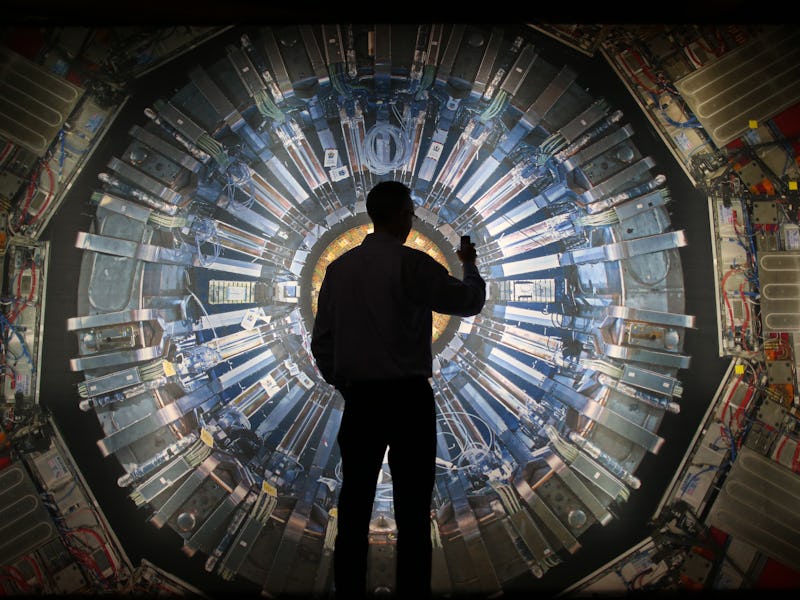CERN Spoiler Alert? Physicists Are Teasing the Laity With New Particle Discovery
In which 'Game of Thrones' don't-tell-me culture arrives at the Large Hadron Collider.

The world’s top particle physicists may have discovered a new particle and, more specifically, a particle that could fundamentally upend our understanding of the physical world. What is it? Nobody’s telling. The good folks at the European Organization for Nuclear Research, known by the French acronym CERN, are taking a very coy approach to what seems like a looming announcement. The researchers who confirmed the existence of the Higgs Boson “God” particle in 2012 are teasing a new discovery that might affect the Standard Model of theoretical physics. Basically, this new particle is now the Large Hadron Collider’s dead Jon Snow.
“If this is really true, then it would possibly be the most exciting thing that I have seen in particle physics in my career — more exciting than the discovery of the Higgs itself,” theoretical physicist Csaba Csaki, who is not even directly involved in these experiments, told the Associated Press. This is, as far as quotes from scientists go, pretty damn breathless.
Many of the experiments at CERN make use of the Large Hadron Collider, a device that fills a tunnel with a circumference of 17 miles, 500 feet below Earth’s surface near the France-Switzerland border. The device speeds up particles to near the speed of light so they collide into each other. By analyzing the result of these collisions, the scientists hope to uncover the secrets of the most basic particles that make up the universe.
The buzz about a forthcoming discovery began in December, when scientists saw evidence of something on two different detectors within the machine. But they will have to test and retest, analyze and reanalyze, until they are absolutely sure that they saw what they think they saw.
What could it be? It might be some form of dark matter, a material that theoretically makes up most of the universe, but for which scientists have yet to find direct evidence. Whatever it is, this new particle could rewrite the book on theoretical physics, and potentially bring us closer to a Theory of Everything that unifies the currently mutually exclusive quantum field theory and general relativity.
Or maybe it’s nothing, a blip that seemed too good to be true, and turned out to be so. Expect hints to drop over the coming weeks and months. If the researchers have found the proof they’re looking for, expect a lot of excited physicists at the International Conference on High Energy Physics in Chicago in August. Until the news breaks, us lay people are just going to have to sit around and wait.